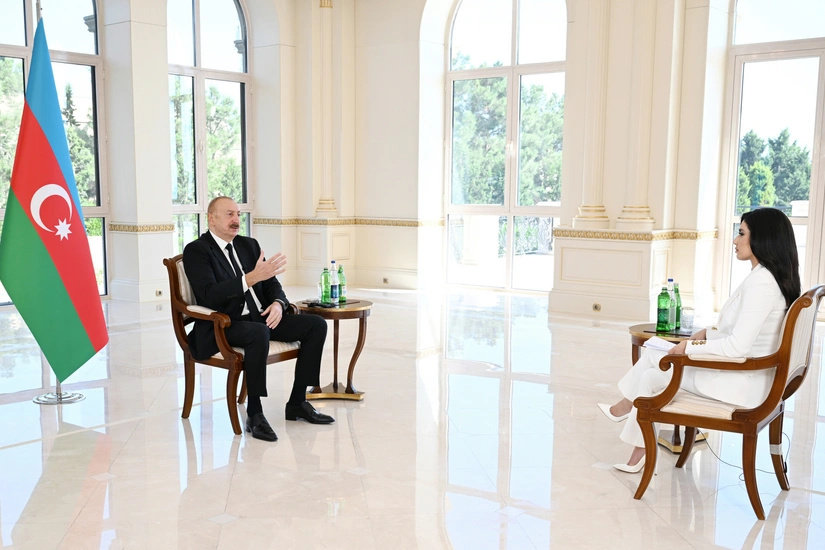Ilham Aliyev: Trump administration accepted Azerbaijan's legitimate concern with proper attitude
- 27 August, 2025
- 11:25

Trump's administration accepted Azerbaijan's legitimate concern about the route passing through Armenia with the proper attitude, and that's how it turned into TRIPP — Trump Route for International Peace and Prosperity, President Ilham Aliyev said in an interview with Saudi Arabia’s Al Arabiya TV channel, Report informs via AZERTAC.
"Today, in order to get to Nakhchivan, we have to either fly there or go by bus or car through the territory of Iran, or even take a longer route through Georgia and Türkiye before entering Nakhchivan. So it causes a lot of inconvenience and problems," the head of state said.
According to Ilham Aliyev, after the Second Karabakh War victory, Azerbaijan could have taken that part by force: "At that time, the Armenian army was totally demoralized. There were 12,000 deserters who ran from the war in the Armenian army and zero in the Azerbaijani army. The Azerbaijani army was motivated; the people were motivated, and there was no one in front of us. We stopped on November 10, 2020, at our border. We didn't take that part by force, but we told Armenia that they cannot block our communications with Nakhchivan. So for almost five years, we've been negotiating with them about these connectivity lines. In the meantime, we started to build a railroad toward the Armenian border to connect it with Nakhchivan, and started to build the highways. The highway projects will probably be ready next year, as well as the railroad."
The Azerbaijani leader said that during almost five years of negotiations, Armenia did not demonstrate a constructive approach with respect to Azerbaijan's demands or legitimate requests. So when President Trump and his team started to be involved in the process and wanted to facilitate, our message to them was: without the Zangezur Corridor being operational and safe, so that Azerbaijani citizens can travel safely along this 40-plus-kilometer route, there must be strong security guarantees — international security guarantees."
 USD - 1.700
USD - 1.700 
 Azerbaijani Version
Azerbaijani Version  Russian Version
Russian Version